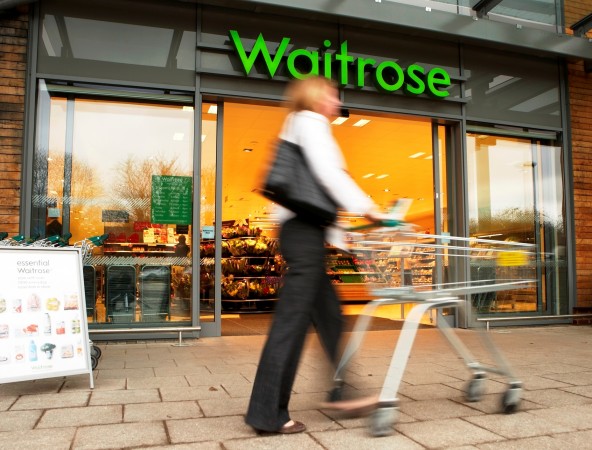The interim report for employee-owned retailer John Lewis showed a fall in pre-tax profits of 53.3% for the first six months, to £26.6m.
Chairman Charlie Mayfield said: “The first half of this year has seen inflationary pressures driven by exchange rates and political uncertainty. These have dampened customer demand, especially in categories connected to the housing market.”
Excluding redundancy and restructuring costs, pre-tax profit was down almost 4.6% at £83m for the six months to 29 July.
The report warned continued pressure on margins and a hit from pension accounting charges would impact on its full-year results.
But gross sales across the Partnership, which includes grocery chain Waitrose, were up 2.3%, to £5.4bn, with Sir Charlie hailing “a solid performance in a difficult market”, with market share gains in fashion.

Operating profit, before exceptional items and property profits, was up 10% in John Lewis, while in Waitrose it was down 18%, held back by lower margins due to higher cost prices.
Sir Charlie said the business had faced a “difficult backdrop”, with increased cost prices driven by exchange rates putting pressure on the margin.
“We have chosen to hold back on increasing prices across many areas,” he added.
“Our results also reflect the acceleration of our strategy to ensure the Partnership’s success in the future. This has included: changing the way we operate Waitrose branches, creating new flexible team structures with broader responsibilities; further changes in John Lewis to adapt the business for the future; and moving from divisional to Partnership functions across finance, personnel and IT. As a result, we incurred exceptional costs of £56.4m.

“Sales growth has continued in the first few weeks of the second half. We are well set for our all-important seasonal peak, but we expect the headwinds that have dampened consumer demand and put pressure on margins to continue into next year. In addition, we will incur higher pension accounting charges in the second half-year, as a result of low market interest rates. These will all impact our full year profits.”
He said the Partnership had also increased pay for its workers after falling foul of minimum wage rules in May.
The report said: “We have continued to invest in pay, with the average hourly rate of pay for non-management Partners increasing to £8.87 after the April 2017 pay review.
“Since the year end, we have entered into discussions with HMRC with regards to our pay arrangements which have technically not complied with the National Minimum Wage regulations. As we work through this we continue to hold a provision, as described in our full year results.”
Discussing the results, Sir Charlie told the BBC Radio 4 Today programme that continued uncertainty over Brexit had affected trade.
“Brexit is having an effect on the economy, no question,” he said. “It’s the same for everybody and the main effects are sterling and confidence.
“Uncertainty is one of the consequences of this and of course businesses never like uncertainty because it makes it hard to plan for the future.
“There needs to be a serious parliamentary debate to figure out what kind of Brexit we’re going to have in the best interests of the country and the economy.”